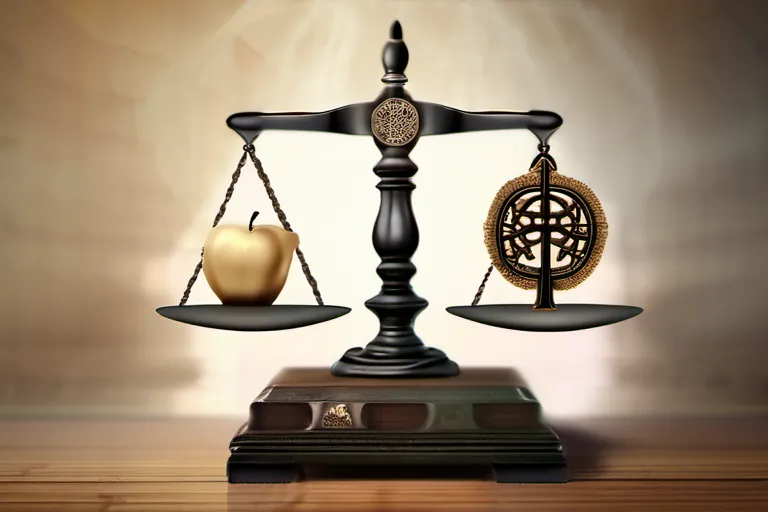Exploring the rationality of religious belief through historical, philosophical, and psychological perspectives.
Religious beliefs have been a fundamental aspect of human societies for thousands of years. However, the question of whether these beliefs are rational or not remains a topic of ongoing debate. In this article, we will delve into the various arguments for and against the rationality of religious belief, examining historical, philosophical, and psychological perspectives.
The Historical Context of Religious Belief
How did religious beliefs come to be? Is it a matter of divine revelation, or are they simply products of human imagination and societal needs? Throughout history, religious beliefs have played a significant role in shaping societies and cultures. From ancient civilizations like Egypt and Greece, where gods were worshipped as omnipotent beings, to the monotheistic religions that emerged later—such as Judaism, Christianity, and Islam—the quest for understanding and finding meaning has been intertwined with our cultural heritage.
Take, for instance, the early Egyptian civilization. Their pantheon of gods was a reflection of their natural world, with deities representing various aspects of nature like Ra (the sun) and Osiris (the underworld). This belief system helped them navigate the uncertainties of life and death in a harsh environment. Similarly, the Greeks saw their gods as embodying human traits but on an exalted scale—diligent Athena or vengeful Zeus. These beliefs not only provided comfort but also structured their social order.
As we move through history to the Abrahamic religions, the shift from polytheism to monotheism brought about a different kind of societal structure. The notion of one omnipotent God who commands all created a new paradigm for morality and governance. Think about how the Ten Commandments in Judaism laid down ethical guidelines that influenced later religious texts like the New Testament and Quran.
The evolution of these beliefs isn’t just about the gods but also about human understanding itself. As societies developed, so did their ability to question and refine their religious concepts. Philosophers like Socrates, Plato, and Aristotle in ancient Greece explored the nature of existence and the divine, laying foundational ideas that later influenced religious thinkers.
Today, as we look back at these historical origins, one can’t help but wonder: Are our current religious beliefs simply a continuation of ancient traditions, or do they evolve with every new generation? The answer to this question might lie in the very nature of human belief and its adaptability. As societies change, so too do their religious beliefs, reflecting both continuity and transformation over time.
Philosophical Arguments for and Against Religion
Is religious belief rational? This question has puzzled philosophers, theologians, and ordinary individuals for centuries. When we ponder the argument from design, we find ourselves in a fascinating debate where logic and faith collide. Imagine the universe as an intricate clockwork mechanism, with every part working flawlessly to keep the gears turning. Could such complexity arise by mere chance? Many argue that it is more rational to believe in a grand designer who orchestrates this cosmic ballet.
But what about the problem of evil? If God is all-powerful and benevolent, why does suffering exist? Is it not a glaring contradiction to claim both omnipotence and goodness when we witness human suffering on a daily basis? This paradox has been a cornerstone in arguments against religious belief. It challenges us to question whether a benevolent deity would allow such suffering to persist.
Philosophers have grappled with these questions, often leading them down a rabbit hole of complex reasoning and counter-arguments. For instance, some propose that the existence of evil can be seen as a test of moral character, allowing for personal growth. Others argue that our understanding of God is limited, and what seems contradictory to us might be coherent within a divine plan we cannot fully grasp.
Both sides have valid points, making this debate a rich tapestry of ideas. The argument from design highlights the beauty and complexity of life, inviting us to see beyond the mundane into something profound. Yet, the problem of evil compels us to confront the harsh realities of existence, challenging our beliefs and assumptions.
As we navigate these philosophical arguments, it becomes clear that the rationality of religious belief is far from a straightforward answer. It requires us to delve deep into the nature of faith, reason, and morality. Ultimately, the question of whether religion is rational may lie not in a single definitive proof or disproof, but in our willingness to explore these complex ideas with an open mind.
Psychological Perspectives on Religious Belief
Why do people hold onto religious beliefs despite centuries of scientific advancement? Could it be that our minds are wired to believe in something greater than ourselves, as if we’re all part of a vast cosmic puzzle, seeking pieces that can only come from faith?
Psychologists have delved into the human psyche to uncover why religious belief persists. One theory suggests that it’s rooted in cognitive biases, like confirmation bias—where individuals tend to seek out information that supports their existing beliefs and ignore contradictory evidence. It’s as if our minds are akin to gardens where we plant seeds of faith and weed out anything that doesn’t fit.
Social conditioning also plays a significant role. Our upbringing, the culture we grow in, and the communities we belong to often shape our belief systems. Imagine a child growing up in a religious household; their environment is like fertile soil nurturing those early beliefs. But just as plants need sunlight and water, so too do these beliefs require reinforcement from society.
Another fascinating theory points to the concept of magical thinking, where people attribute meaning or agency to natural events that they cannot control. This can be seen in how people might pray for rain during a drought, believing their actions have an impact on the weather—much like casting a spell in a fantasy world.
The human mind is complex and multifaceted; it’s not just about cognitive biases or social conditioning alone. These theories offer different lenses through which we can view religious belief, suggesting that there isn’t one single answer but rather a combination of factors that contribute to why people hold onto their faiths. Just as a painting requires many brushstrokes to come together, so too does our understanding of the rationality—or lack thereof—of religious belief.
The Role of Religion in Modern Society
How has religion shaped our modern world? It’s as if religion, like a river, has carved paths through time, affecting everything from politics to personal identity. In today’s society, how does religion continue to play a role in shaping ethics and values?
Politically, religion can be seen as both a unifying force and a divisive one. Consider the role of religious organizations in elections or policy-making debates; do they act as neutral participants or as advocates for their beliefs? Is it fair to say that ‘politics has become intertwined with religion,’ creating a complex landscape where faith influences governance and vice versa?
Religion also plays a significant role in ethics, providing moral frameworks and guiding principles. How do religious teachings influence personal morality? For instance, does believing in a higher power alter one’s behavior toward others or their environment? Do people with strong religious convictions exhibit different ethical behaviors compared to those without such beliefs?
The impact of religion on personal identity is profound too. Many individuals find meaning and belonging through their faith. Does having a religious identity affect how someone views themselves and their place in the world? Can one’s spiritual journey be seen as a path of self-discovery, or does it sometimes become restrictive?
Moreover, religion can offer comfort during times of hardship. How do people find solace in their beliefs when facing challenges or tragedies? Is there something about the human condition that naturally seeks out religious explanations for suffering and joy?
As we navigate the complexities of modern society, it’s clear that religion remains a significant force. It influences our political systems, ethical standards, and personal identities. But how rational is this influence? Can we truly separate the rational aspects of religion from its more emotional or irrational components?
The interplay between religion and modern society is multifaceted, with each dimension adding layers to this ongoing conversation about religious belief. As we delve deeper into these questions, it becomes evident that understanding the role of religion requires a nuanced approach—one that considers history, philosophy, psychology, and more.
So, how do you see religion shaping your world? Do its influences add value to our lives, or are they sometimes too restrictive?
Criticisms of Religious Belief
Is religious belief rational? Critics often argue that it serves as a crutch for the weak-minded, a metaphorical lifeline thrown to those who cannot navigate life’s complexities on their own. But is this truly fair?
Consider the argument that religion provides comfort and solace in times of distress. Could it be that those who find strength in their faith are actually more resilient than those who dismiss such beliefs as irrational? Is it not true that many individuals turn to religious practices when faced with life’s uncertainties, finding a sense of purpose and meaning?
On the flip side, critics often highlight how religion can lead to intolerance and violence. The historic examples of religious conflicts—such as the Crusades or the Thirty Years’ War—are cited to illustrate this point. But what about the countless acts of kindness, charity, and social reform driven by religious motivations? Are these not also part of the tapestry of human history?
The question then becomes: How do we weigh these opposing forces? Is religion merely a tool for those seeking comfort in difficult times, or does it have a broader role in shaping societal values and behaviors? Could it be that, despite its flaws, religion has played an indispensable part in the development of human culture and ethics?
It’s worth pondering whether dismissing religious belief outright is the most rational approach. Perhaps there’s more to consider than just the negative aspects often highlighted by critics.
In conclusion, while criticisms of religious belief are valid, they only tell part of the story. The true rationality of religious belief lies in its complexity and the multifaceted ways it interacts with human life. It is a question that continues to challenge our understanding of what makes us rational and how we navigate the world around us.
The Future of Religious Belief
As we gaze into the future, the question looms large: Is religious belief rational in today’s increasingly secular world? With technology and globalization reshaping societies at an unprecedented pace, the landscape for religious practices is undergoing a profound transformation. Will traditional religious beliefs hold their ground or will they fade away like ancient artifacts in modern museums?
Technology offers both a challenge and an opportunity to religious belief. On one hand, it can erode religious traditions by making information more accessible and fostering a sense of individualism over communal faith. Imagine how much easier it is for someone to question religious doctrines when they can instantly access diverse viewpoints online. This digital deluge could undermine the very fabric of religious institutions that thrive on tradition and authority.
On the other hand, technology also opens new avenues for religious expression and community building. Virtual reality and augmented reality applications might allow believers to experience rituals in immersive ways, bridging physical distances and creating a sense of presence in communal worship. Social media platforms can serve as vibrant forums where people from different faiths engage in dialogue, fostering mutual understanding and respect.
Globalization plays another pivotal role. It exposes individuals to a plethora of cultural and religious influences that challenge their existing beliefs. Some may find these new experiences enriching, leading them to adopt a more pluralistic view of the world. Others might feel threatened by this diversity, reinforcing their original faith with renewed vigor. This clash of cultures can be both a source of conflict and a catalyst for dialogue, potentially reshaping religious practices in unforeseen ways.
How will these dynamics play out? Will we see a fragmentation of religious beliefs as people embrace multiple spiritual paths or will there be a resurgence of traditional faiths in the face of secular challenges? The future is uncertain but one thing is clear: religious belief, if it survives, will have to adapt and evolve to meet the demands of an increasingly interconnected world.
So, as we ponder these questions, let us consider: Are we witnessing the twilight of traditional religious belief or its dawn in a new form? The answer may well depend on our willingness to embrace change and find common ground in our shared humanity.
Conclusion
 Ultimately, the rationality of religious belief is a complex issue with no easy answers. While some argue that religion provides a valuable moral framework and sense of community, others contend that it is irrational and harmful. It is up to each individual to weigh the evidence and make their own decision.
Ultimately, the rationality of religious belief is a complex issue with no easy answers. While some argue that religion provides a valuable moral framework and sense of community, others contend that it is irrational and harmful. It is up to each individual to weigh the evidence and make their own decision.











